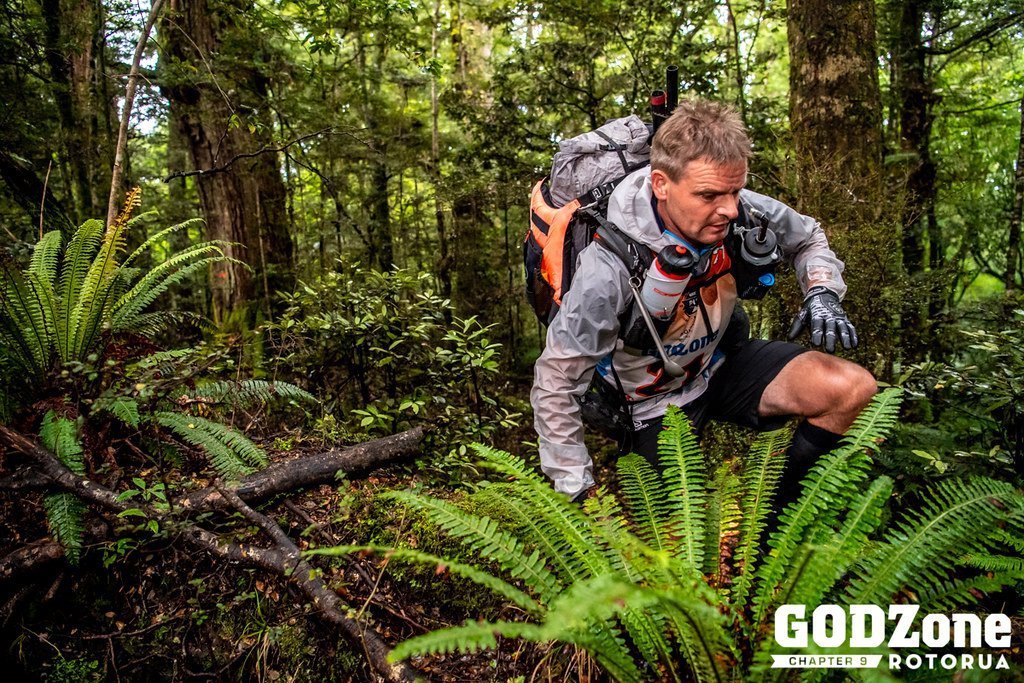GODZone is widely considered one of the best expedition-style adventure races in the world. The annual event takes place in different areas of New Zealand with teams being required to kayak, hike, bike, raft and navigate their way through the dense wilderness. The GODZone event isn’t just a physical test, competitors are also put under an immense amount of mental and emotional stress due to lack of sleep and exhaustion.
Richard Anderson is one of 5 people to have competed in all 9 GODZone, and is also a member of an even smaller group that have managed to complete all 9 events. We caught up with Anderson, to find out more about the course and the training that goes in to competing.
How do you train/prepare for the GODZone events
“I prioritise trekking first, then mountain biking and kayaking and pack rafting last. This year I hiked a lot of the local Wanaka peaks: Grand View, Brest Hill and Corner peak etc. I don’t do excessively long training session as they results in longer recovery time. After 9 GODZone events, I know I have the endurance. A 4-8 hour hike with a heavy pack is my limit so I’m able to recover quickly and continue with other training. I also consider hot yoga and deep tissue massage as part of my training! Good food and sleep is very important especially the week prior to the race starting.”
How did you find this year’s course
“Rorotua was a very hard course. We were racing for six days or approximately 127 hours. We got a total of 11 hours sleep and did two full nights with no sleep. The course had a lot of trekking/bush bashing early in the race which put a lot of stress on our feet. Ultimately, I got an infection or blood poisoning in my right foot on day 4 which rendered me unable to run. We kept the infection at bay with antibiotics which we carry as a precaution.”
How does the team dynamic work when you’re out there
“We all have roles. We have a lead navigator, a supporting navigator, a “pack horse” who carries most of the kit and a team captain. During the event, we are all responsible for communicating how we are doing physically and mentally. We ask each other how we feel on a scale of 1-10. If someone is a 5 or worse we’ll take gear off of that person and help with food, hydration or in my case medication. We also tow where possible but mostly we talk and offer mental support to each-other 24/7.”
Any recommendations for those aspiring to compete in future GODZone events
“Do a 24 hour race first. The Southern Lakes Multisport Club run a good 24 hour race. Highland Events put on lots of regains. Be aware that the first 24 hours is often the hardest of GODZone. Everyone is excited and pushing hard. On day 2, 3, 4, 5 etc we all slow down and the pace is more bearable. 24 Hour races are hard, so don’t be put off, just remember the GODZone race is a marathon not a sprint.”
Is there any other insider knowledge you can pass on
“Navigation is the key to a good GODZone. You can be as fast as you like but going in the wrong direction is a slow route! Slow and steady navigation will always help. We climbed from 9th to 4th position on day 2 with good navigation. Slow on day 1, great navigation on day 2, that was our plan and it worked well.
Get to know your team mates. They are your support crew during the race. Get to know each-other’s strengths and weaknesses and most of all be honest when asked how you’re doing. We all need some help during 127 hours of racing.
Be prepared i.e. know your equipment, food and pack it well. Label it and make it easy for you when you brain is not working.
Do lots of races and record your mistakes after each race so that you know what to work on.
Look after your feet, I ended up taking IV antibiotics to over-come my infection. Ultimately that infection cost us 4th place. You may need to apply Vaseline or similar every 6-8 hours if you want to keep moving!”







